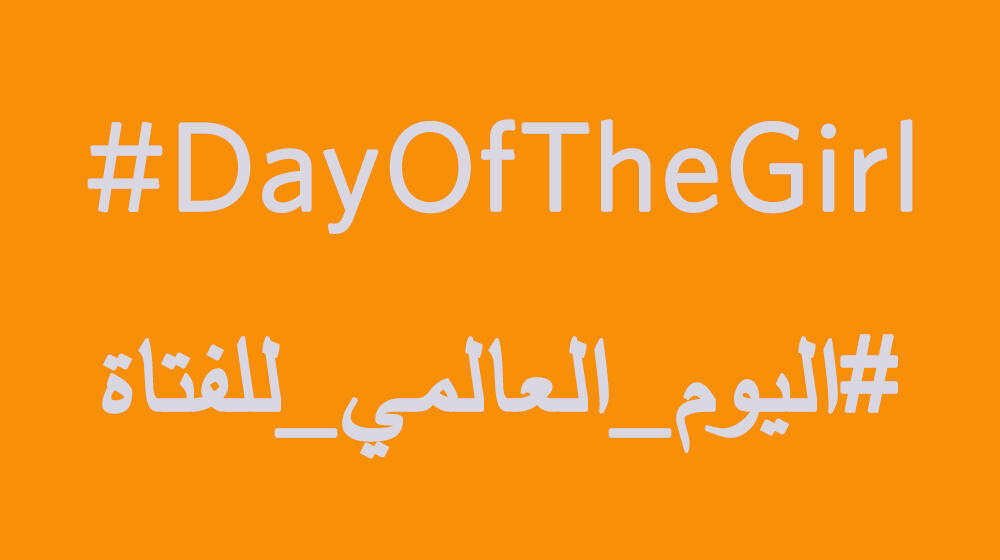On the occasion of the International Day of the Girl Child and under the global theme for this year “Digital generation. Our generation”; the Gender-Based Violence Sub-Working Group (GBV SWG) in Jordan have collected a number of stories of girls and adolescent girls in Jordan who are working on bridging the gender-digital divide and advocating to ensure all girls have equal access to the internet, technologies and equal access to tech skills and opportunities.
Today, we celebrate their efforts!
Technically Empowered Girls Sharing their Knowledge
Story credit: UNFPA Jordan
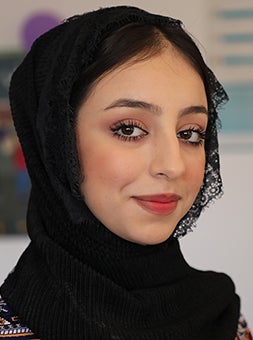
Earlier in 2021, Bessan, a 19-year-old Syrian adolescent girl who lives in Madaba city, participated in a UNFPA training course that aims to bridge the gender digital divide by empowering women and girls technically. The 8-week course, titled ”Me & my Mobile”, organized with Zain Jordan Telecom and the Institute for Family Health (IFH) introduces participants to useful mobile applications and ways to protect themselves from cybercrimes, including technology-facilitated Gender-Based Violence (GBV); a rising problem that disproportionately affects women and girls.
During the training, Bessan and her classmates were introduced to a wide-range of practical mobile applications (apps) that can be used daily. Some of these apps are particularly vital to women and girls, such as the Amaali app, that provides information on protection services in Jordan. Similarly, they downloaded a period-tracking app that keeps them well informed about their health, as well as apps that support them in enlarging their small businesses.
“Immediately after completing the training, I shared the Amaali app with my friends and relatives and urged them to download it, as it offers them information about confidential protection services.” explained Bessan.
Moreover, Bessan and colleagues were also introduced to safe internet and YouTube browsing to protect children from inappropriate content. “When I told my sister about YouTube’s parental control, she asked me to teach her how to change the settings, so her kids are protected from unsafe and inappropriate content,” the new tech wiz indicated.
Bessan realized how valuable “Me & my Mobile” course is, when she was able to retrieve her cousin’s hacked social media account. She recalls, “When my cousin told me she is unable to access her account, I offered to help by applying the information I learned during the course. Her friend had taken advantage of the personal information she knew about her to hack her account. Following the account recovery, not only did my cousin change her passwords, but also used a two-step verification method linked to her mobile phone number for extra protection”. Bessan urges women and girls to resort to the Cyber Crimes Unit to report such incidents, as help is available, stressing they are not alone, but also encourages them to take cyber-protection classes, “It is very important that all girls attend such courses, to protect themselves and others,” she added.
Today, I’m no longer afraid of any online risks; I am well prepared to protect myself and others. In fact, I started investing my time in utilizing useful applications
From passion to innovation
Story credit: The British Embassy in Jordan
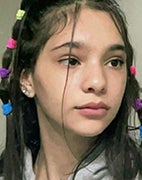
Sarah Saudi is a 9th grade Jordanian student, since her childhood she has been passionate about science, space and astronomy. Also, she has a big appetite to learn new things, understand how they function and experiment with her hands. One day she learned about a program on Artificial Intelligence (AI), delivered by AstroJo that is funded by the UK's Newton Khalidi Fund. Although this is a new topic and non-orthodox course to be offered to girls at this age, it definitely got Sarah intrigued, so she signed up immediately.
During a five-week period, Sarah went from knowing very little about AI, to being fully capable of programming a simple version of a calculator from scratch.
I learnt a lot during the program, and experienced new things, which made me realize how much I love this field and how passionate I am about innovation
Through this course, Sarah discovered a passion for programming, creating and innovating.
Sarah truly believes that girls can learn and excel in the AI field like other boys their age. Actually, girls are faring better than their counterparts, since they have the patience to get things done and accomplished. Today, Sarah is keen to pass this knowledge to her peers once the exam period is over.
“Girls can do wonders when given the opportunity and the tools that unveil their passion and potential,” she concluded.
Challenging gender stereotypes
Story credit: UNHCR Jordan
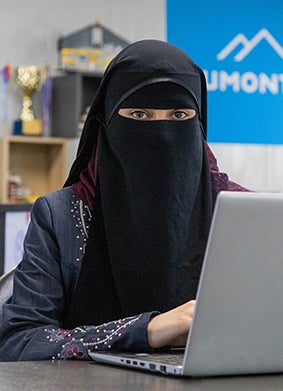
Roqaya, 21, has been living in Zaatari refugee camp with her family since 2013. She is now studying Software Engineering at a Jordanian university. Due to the difficult conditions pertaining to camp residence, not so many girls who live in the camp pursue their higher education, but Roqaya is adamant about keeping pace with developments around her. She is deeply convinced that girls should be centrally involved in technology-related fields that are shaping our lives. Moreover, she is passing along her passion and the skills she is acquiring with other refugees in the camp. In fact, Roqaya is volunteering with a humanitarian organization focusing on innovation and software programming. This enables Roqaya to support her community by empowering others to use modern technologies. At the same time, she is gaining practical experience that will serve her once she lands a job after graduation.
“The reason not so many girls pursue scientific fields like software engineering, is because they are under the impression that it is reserved for boys. Nonetheless, I encourage them to study this major, as society more than ever greatly needs women and girls' contributions and involvement alongside men and boys. Indeed, technical fields are the gateway towards technological advancements of any nation,” Roqaya indicated.
She aspires to work on an initiative that teaches hands-on computer-related subjects at schools from an early age, as she stresses how vital these skills are in today’s world.
“I hope to become a successful programmer one day and work with big international tech companies for my skills and talents that will help reshape the world technologically.”
She added, “Also, I hope I can become a role model for other girls to overcome their hardships, excel and go beyond their limits to prove they are qualified and capable in scientific fields”.
With her determination and attitude, Roqaya is indeed an inspirational young woman that beams with hope and positive energy in Zaatari camp.
Capitalizing on COVID-19 E-learning opportunities
Story credit: SOS Children’s Village
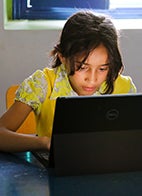
When the coronavirus pandemic took the world by storm, the need for E-learning emerged, in order to stand and deliver education to students worldwide. Consequently, more than ever people were exploring various types of technologies to deliver their tasks electronically and digitally, and Jordan was not an exception.
One day, while the computer instructor at the SOS Children’s Village was maintaining the system to avoid technical issues, he noticed how Hanan, 14, was interested in his work. He later on realized that the SOS Village adolescent girls is equally interested in coding, programming and creating her own website or useful mobile phone application in the future.
Upon her request to learn coding and programming, her teacher at the SOS Village indeed gave her the opportunity to learn the skills she needed for establishing a website of a mobile app that advocates for orphaned and vulnerable girls.
“Having taken the training, my dreams and aspirations grew bigger."
"I realized that we are able to raise awareness on the issue of orphaned and vulnerable girls with very little resources, mainly using technology, which has now become globally indispensable.” She added.

